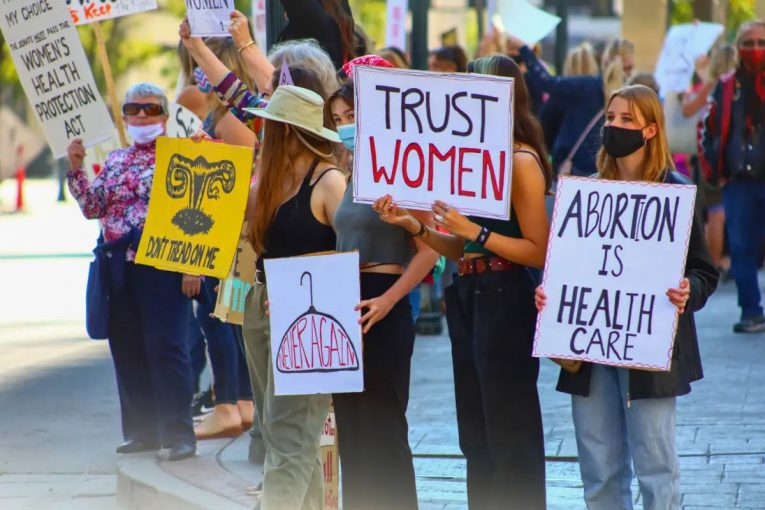

By Julie McCaffrey
NEBRASKA AND SOUTH CAROLINA – Abortion bans in Nebraska and South Carolina failed to garner enough legislative support to pass last week, according to the Associated Press, noting abortion is legal in Nebraska up until 20 weeks of pregnancy, and is legal in South Carolina up until 22 weeks of pregnancy.
According to AP, both states have become a sort of “regional haven” as neighboring states enacted more restrictive abortion bans.
The Nebraska bill aimed to shorten the abortion ban from 20 weeks to 6 weeks of pregnancy, commonly called a “heartbeat bill,” and is unlikely to move forward this year, said AP, noting the bill failed to advance by one vote when Sen. Merv Riepe abstained.
While others were surprised by his abstention, Riepe told WOWT news, “it shouldn’t have been a surprise.” Riepe, a co-author of the bill, introduced an amendment to the bill weeks earlier that would increase the ban from 6 weeks to 12 weeks. Despite backlash from notable figures, such as the Governor of Nebraska and the Nebraska Republican Party, Riepe stands firm in his decision to abstain from the vote, therefore killing the bill.
In response to the bill’s failure, Nebraska Governor Jim Pillen released a statement saying, “I am a staunch defender of Life and supporter of the Nebraska Heartbeat Act. I am profoundly disappointed in the cloture vote today. It is unacceptable for senators to be present not voting on such a momentous vote. I call on Senator Merv Riepe to make a motion to reconsider and stand by the commitments to Life he has made in the past.”
Scout Ritchers, Senior Legal and Policy council of the ACLU of Nebraska remarked, “Even as we celebrate today’s victory, we recognize the vote should not have been this close… We will continue doing all we can to ensure that decisions about our lives, bodies and futures stay with Nebraskans and their medical providers, not politicians.”
Opponents of the bill rejoiced outside of the legislative chamber. Senator Megan Hunt (@NebraskaMegan) tweeted “Speechless. Thank you. Abortion is legal in Nebraska,” and attached a video of protesters embracing and crying, amid cheers and claps.
Regarding the bill’s failure to pass, Jo Giles, executive director of the Women’s Fund of Omaha, exclaimed, “Wow! This was unexpected, but we’re so glad to have this win. We have fought so hard. This bill is not what the majority of women in this state wanted.”
According to a study conducted by Pew Research Center in 2014, 57 percent of Nebraska women supported the legality of abortion in most or all cases. More recently, the ACLU commissioned a 2022 study conducted by Hart Research that found 59 percent of participants opposed “state senators enacting more restrictive abortion bans in Nebraska.”
In South Carolina, lawmakers voted to shelve a near-total abortion ban for the remainder of the year, and according to NPR, the bill was shelved after the only five female lawmakers undertook a days-long filibuster opposing the bill, marking the third time this year a near-total abortion ban has failed to pass in the Republican-controlled Senate chamber.
Sen. Sandy Senn was one of the female lawmakers taking part in the filibuster. During the filibuster, Sen. Senn remarked that abortion issues were about control.
“Abortion laws, each and every one of them, have been about control, It’s always about control, plain and simple. And in the senate, the males all have control. We, the women, have not asked for nor do we want your protection. We don’t need it,” Senn said in the NPR report
NPR said she called the abortion ban, “crazily oppressive,” and speaks about how the Senate is mostly male. She said, “The only thing that we [women] can do when you all, you men in the chamber, metaphorically keep slapping women by raising abortion again and again and again, is for us to slap you back with our words.”
Since the June overturning of Roe v. Wade, abortion has been a divisive issue. According to Axios, 19 states have enacted abortion bans or have restricted abortions. A bill introduced in the South Carolina House even went as far to make those who have undergone an abortion subject to the state’s homicide laws, which can be punished with the death penalty.
According to NBC, this bill has not been acted upon in the South Carolina House, but has attracted national attention.
Despite the abortion restrictions and bans currently being introduced, most Americans are in support of it. In a study conducted by Pew Research Center in 2022, 61 percent of Americans say abortion should be legal in all or most cases.
New agencies report aligning with the sentiments of the majority of America, national legislation has been reintroduced to protect a woman’s right to abortion under federal law.
This bill is titled the Women’s Health Protection Act, and was introduced to the House of Representatives on March 30. This bill has passed the House in 2022, but died in the Senate. It is unclear when the bill will be voted on in 2023.